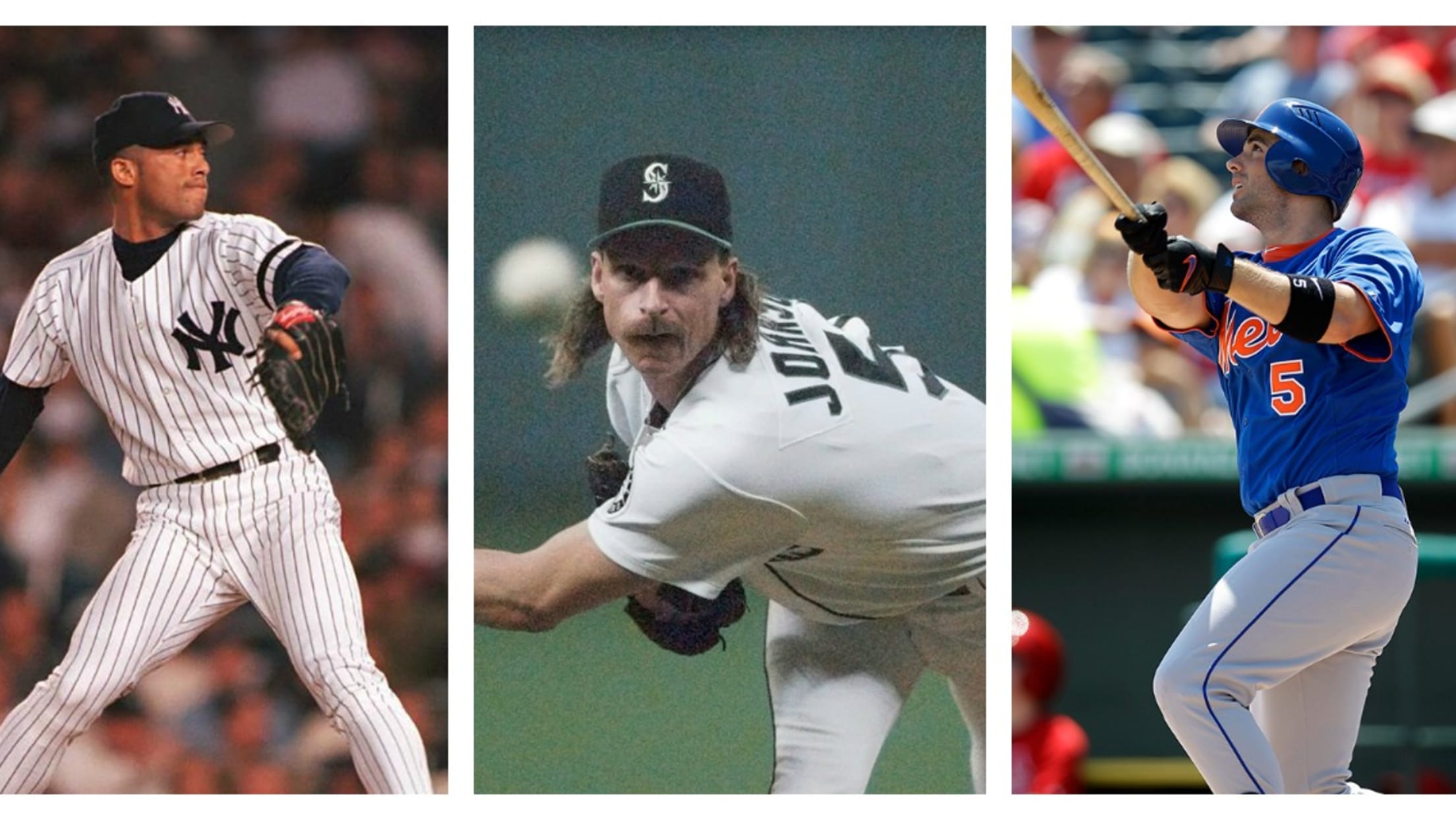Celebrate the madness of the Trade Deadline with eight of the weirdest trades in MLB history
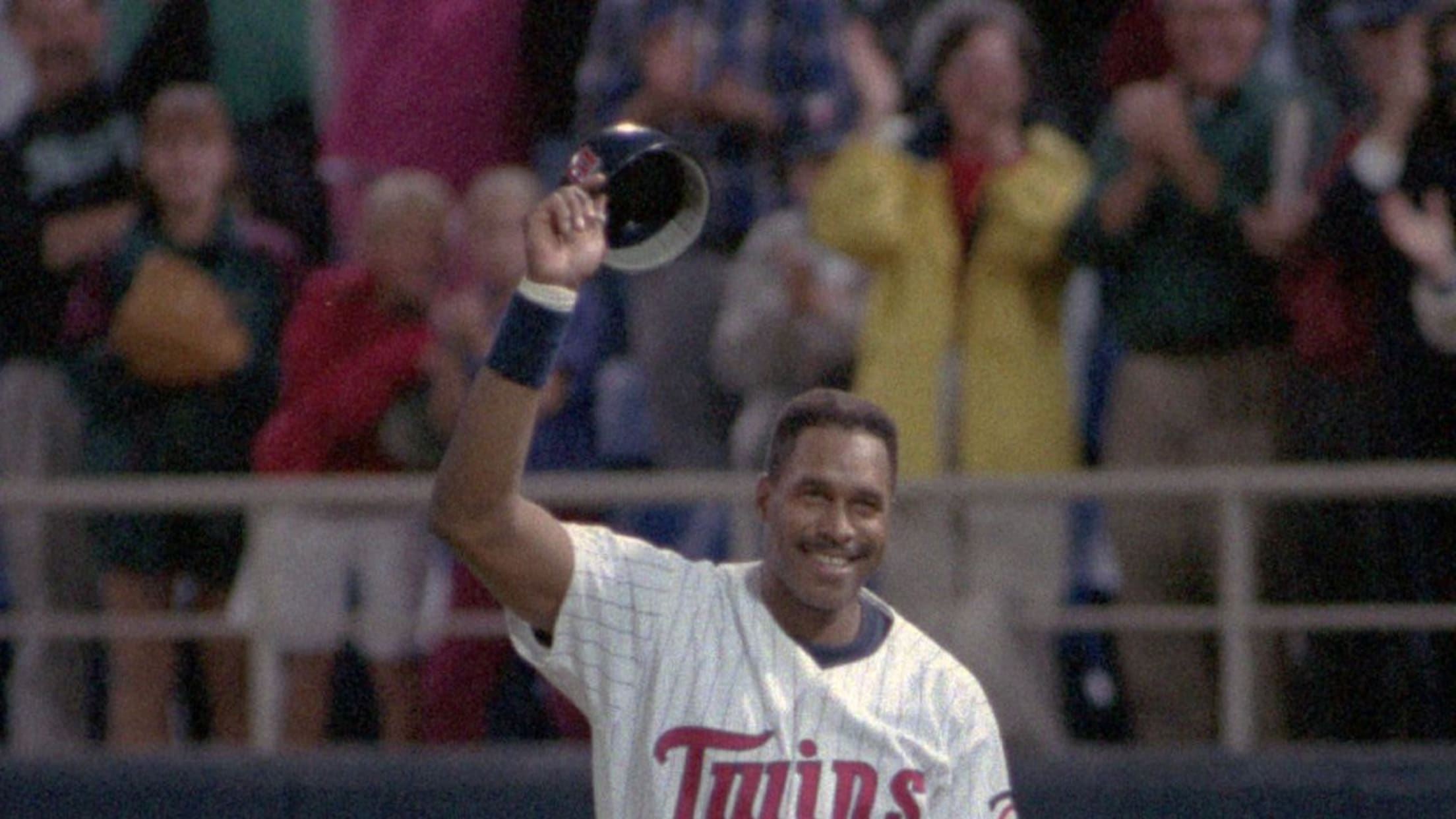
At long last, the non-waiver Trade Deadline is here. We're not sure which stars will end up where by 4 p.m. ET, but here's what we do know: Mystery teams will emerge, #sources will be #sourced, chaos will reign and the Major League landscape could be fundamentally changed.
It's going to be a crazy few hours -- so to help set the mood, let's take a look at the absolute craziest trades of years past. Because compared to a player being dealt for a turkey,
Cy Young for $300 and a crisp suit
Sure, that doesn't seem like much for the winningest pitcher in baseball history, but back in 1890 Cy Young was just a righty for the Canton Nadjys of the independent Tri-State League. (Since we know you're wondering: A nadjy is a type of field horse commonly used on Ohio farms.)
Young's velocity was already legendary -- the story goes that he earned the nickname "Cyclone" (later shortened to just "Cy") because of the damage his fastball wrought on the grandstand during his tryout -- and he pitched well enough during his one season in Canton to convince the National League's Cleveland Spiders to acquire him. Of course, being an independent team, the Nadjys were in no position to receive an actual player in return, so they asked for the next best thing: some cash and a new wardrobe for their manager.
Kerry Ligtenberg for 12 dozen baseballs and two dozen bats
It seemed like Kerry Ligtenberg wasn't long for professional baseball. After spending a few days as a replacement player during the work stoppage in the spring of 1995, the righty went back to school and was just one class away from graduating from the University of Minnesota with an engineering degree.
But Greg Olson, manager of the independent Minneapolis Loons and a former Braves catcher, convinced him to keep pitching.
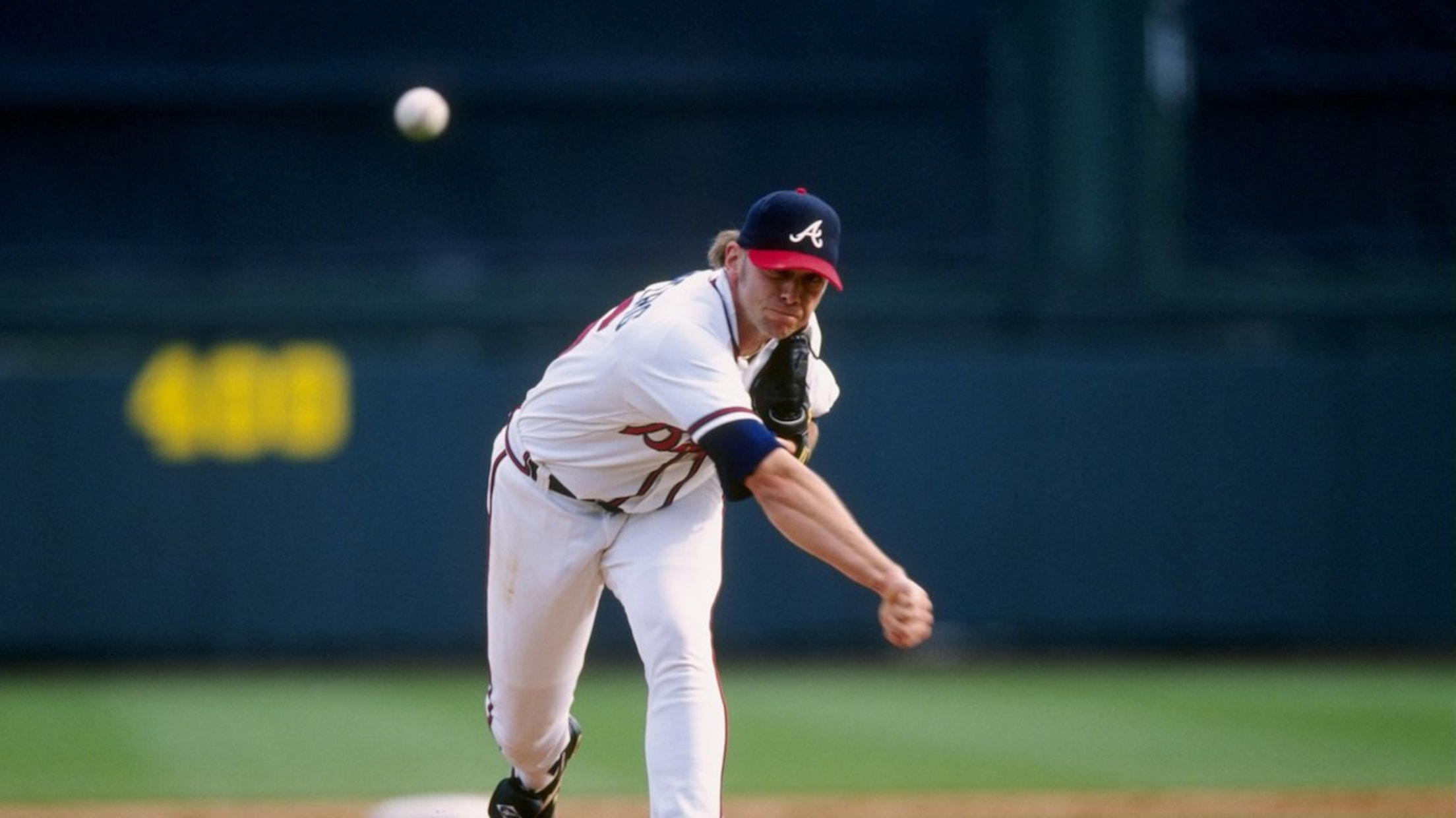
Ligtenberg excelled with the Loons, and in 1996, Olson eventually convinced a couple of Atlanta scouts to fly out to Minneapolis to see him pitch. The scouts saw enough to sign the righty to a Minor League deal that June, and he would go on to pitch eight seasons in the Major Leagues. After the deal was done, assistant Braves GM Dean Taylor called to thank Olson for the find and ask if there was anything he could do to compensate him.
Initially, Taylor offered cash, but as Olson later explained to the Baltimore Sun, it was easier to just cut out the middleman.
"I didn't need money," Olson said. "In reality, as an independent league manager, the thing you need is equipment. Dean said, 'What do you need?' and I said, 'How about 12 dozen baseballs and two cases [24] of bats?'"
Dave Winfield for a nice dinner
To be fair, Dave Winfield wasn't initially traded for a meal. In last place in the AL Central, the Twins traded the 42-year-old future Hall of Famer to the Indians at the 1994 Deadline for a player to be named later.
Unfortunately, the deal hit a snag: The players' strike began just a couple of weeks later, and since Winfield was in the last year of his contract, the player the Twins would receive was never named. Looking for some small way to settle the deal, Indians executives decided to take their Minnesota counterparts out to dinner that winter.
Manager Joe Gordon for manager Jimmy Dykes
Frank Lane served as general manager for six Major League teams over 25 years, and during that time, he never saw a trade proposal he didn't like. His quick trigger was so notorious that it even earned him a nickname: Frantic Frank.
Lane's most famous transaction came in 1960, when he dealt beloved Indians outfielder Rocky Colavito to the Tigers in a deal that may or may not have placed a curse on his own franchise. But we're here to talk about a trade that came just a few weeks later -- when Lane convinced Detroit to swap managers.
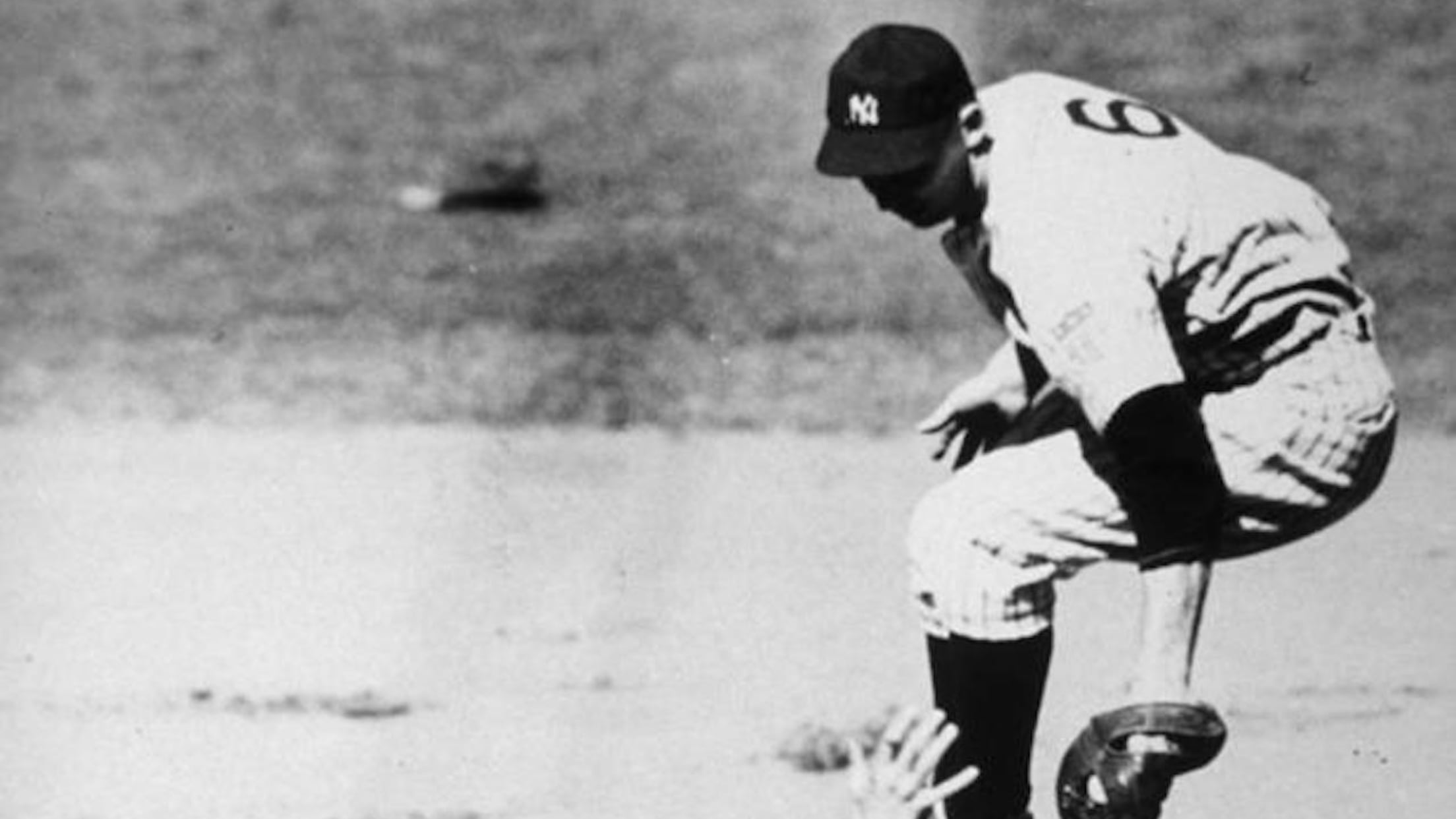
By August of 1960, his first year with the Indians, Lane had completed a fire sale for the ages. After trading lefty Herb Score to the White Sox, not a single player from the 40-man roster he inherited remained. (Legend has it that Lane wanted to trade his entire team to the Tigers at once as a stunt, but it was nixed by Commissioner Ford Frick.)
Of course, that didn't mean he was done dealing -- after all, there was still manager Joe Gordon. In his defense, Lane always maintained that the idea to swap skippers was Tigers GM Bill DeWitt's: "This was no trade," he told the Cleveland Plain Dealer. "This was just a couple of guys getting fired and getting fielded on the bounce by a couple of other guys."
When you once spent 36 consecutive hours trying to acquire Minnie Minoso, though, you lose the benefit of the doubt.
Johnny Jones for a 25-pound turkey
You could fill volumes with tales of Joe Engel's showmanship. After a mediocre career as a pitcher for the Washington Senators, Engel showed such a knack for evaluating talent that the team eventually named him director of baseball operations of the Chattanooga Lookouts, one of its Minor League affiliates.
Over more than three decades at the helm, Engel did just about anything to get fans to the ballpark (which he named after himself, naturally). He ordered players to ride elephants to the game. He once had a duck lay an egg on second base. He even invited a local female pitcher, Jackie Mitchell, to start against the New York Yankees -- where she promptly struck out Babe Ruth and Lou Gehrig. And then, of course, there was the time he traded his shortstop for a turkey.
Johnny Jones had struggled as the Lookouts' starting shortstop in 1931, so much so that Engel was determined to trade him. It didn't take him long to find a match: The independent Charlotte Hornets (no, not those Charlotte Hornets) agreed to acquire Jones, and in return, they shipped a 25-pound turkey to Chattanooga -- because, in Engel's words, "the turkey was having a better year."
He served the bird at the Southern Writers' Association dinner later that winter, and after discovering that the turkey was a bit rough, he declared that Charlotte had won the trade. (In other food transaction news: In 1998 pitcher Ken Krahenbuhl was dealt to the independent Greenville Bluesmen for a whopping 10 pounds of catfish.)
Lefty Grove for some fence repairs
Even as a teenager, Lefty Grove was such a force on the mound that the manager of the Baltimore & Ohio Railroad team in Cumberland, Md., offered him a job cleaning the cylinder heads of steam engines just so he could pitch for the company team. He accepted, but he never did get to pitch for B&O: Before the start of the 1920 season, Grove was offered a contract by the Class D Martinsburg (W. Va.) Mountaineers
And even though he wasn't quite sure how to throw a curveball yet, he pitched well -- so well, in fact, that he soon caught the attention of the then-Minor League Baltimore Orioles (the same team that had discovered Babe Ruth just a few years prior). Owner Jack Dunn sent his son, Jack Jr., to scout Grove, and after just one start, got in touch with Martinsburg manager Bill Louden about acquiring the young lefty.
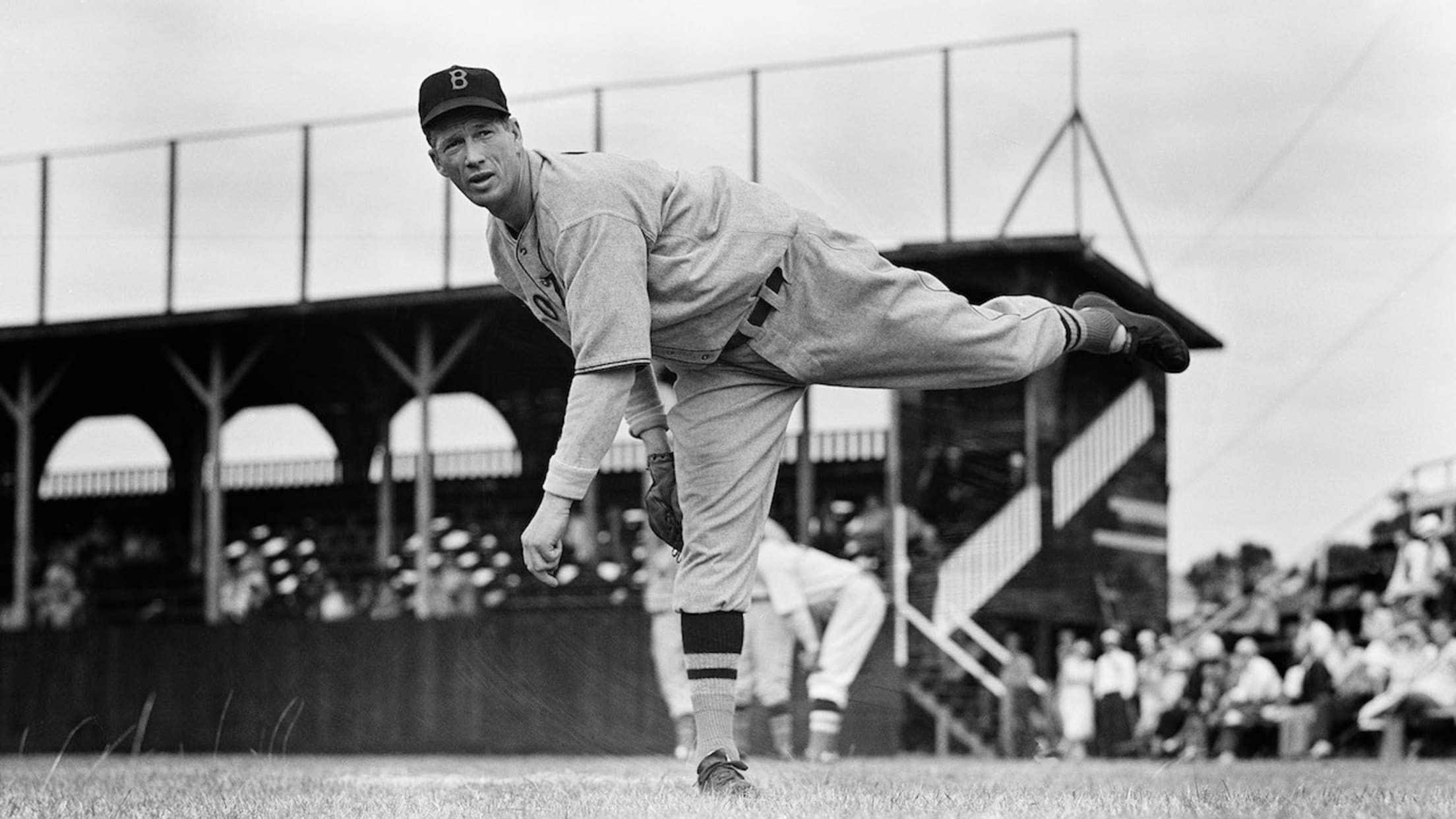
Louden was happy to oblige, on one condition: The outfield fence at Martinsburg's ballpark had been leveled by a storm, forcing them to start the 1920 season on the road. Baltimore could have Grove if it paid for a new one -- some $3,500. Dunn quickly agreed, assuring Lefty a very strange place in baseball history: "I was the only player," he once said, "ever traded for a fence."
Cliff Dapper for Ernie Harwell
Yes, Ernie Harwell the broadcaster.
Back in 1948, well before he became the legendary voice of the Tigers, Harwell called games for the Atlanta Crackers of the independent Southern Association. The Crackers were his hometown team, the team that brought him on as a batboy at just 5 years old, and he'd begun working for them almost immediately after graduating from Emory University.
Unbeknownst to Harwell, though, all that was about to change. That spring, iconic Dodgers radio man Red Barber suffered a bleeding ulcer, rendering him unable to call games for the rest of the year. So Brooklyn GM Branch Rickey went searching for a quick replacement -- and eventually he settled on Harwell.
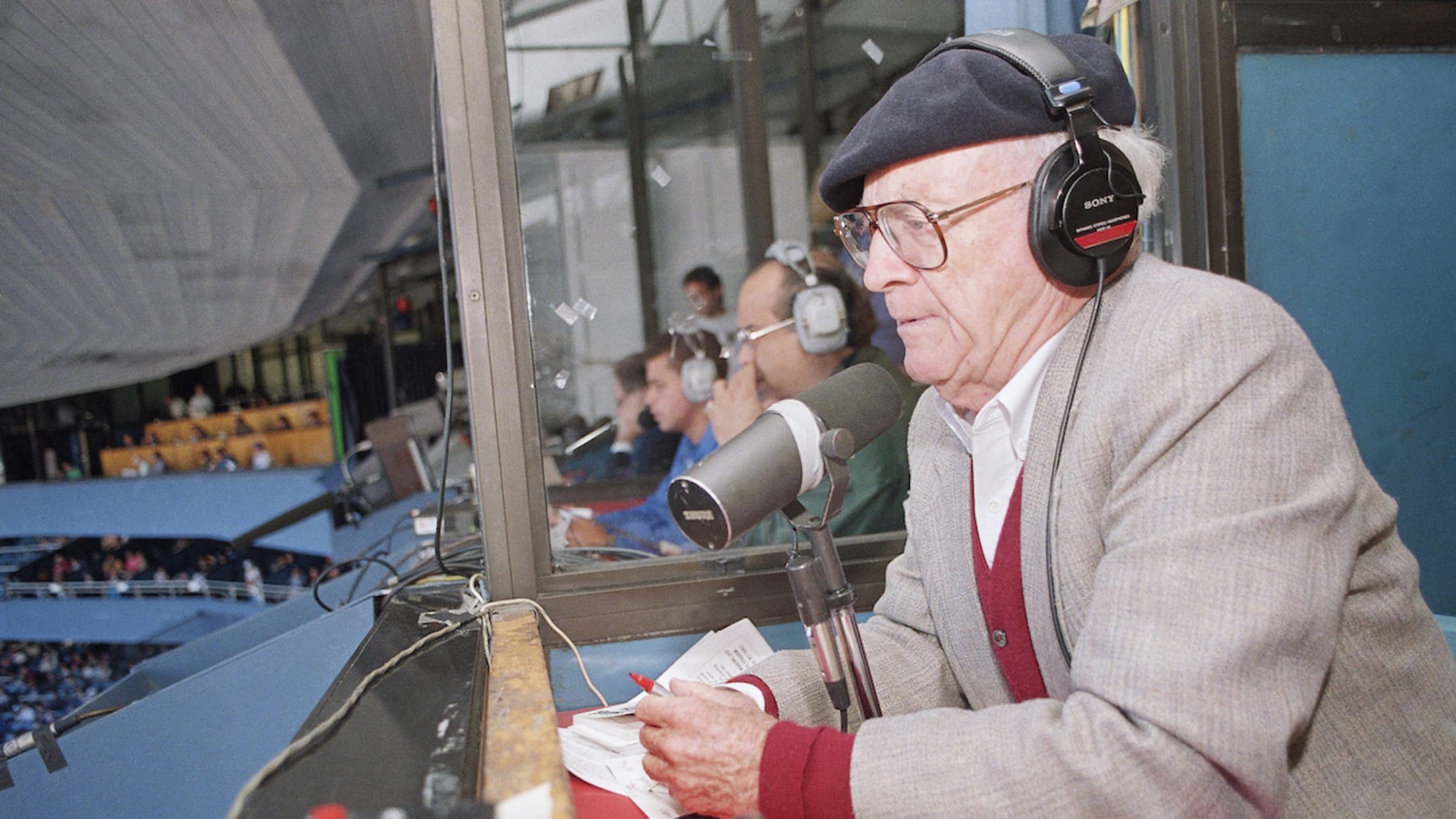
Alas, Harwell was still under contract with the Crackers, and team president Earl Mann wasn't about to let his young broadcaster just walk out the door. After some back and forth, Mann and Rickey were able to strike a deal: Mann would let Harwell move to Brooklyn in exchange for Dodgers catcher Cliff Dapper (the team already had All-Star Mickey Owen behind the dish, so Dapper was expendable).
As it turned out, the trade was brilliant for both sides. Harwell moved on to the crosstown Giants in 1950 and would call Major League games for more than 50 years. Dapper, meanwhile, thrived in his new home -- he hit .280 in his first season with the Crackers, and left such an impression in the clubhouse that the team named him manager for the 1949 season.
Harry Chiti for ... Harry Chiti
Do not adjust your screens, you read that correctly: In 1962, Harry Chiti became the first player ever to be traded for himself. Allow us to explain.
At the beginning of their inaugural season, the Mets were in search of a catcher with some experience under his belt. They settled on Chiti, a 13-year Major League veteran who the Indians had acquired that winter. Cleveland agreed to ship him to New York for a player to be named later, a perfectly innocuous deal between two teams that didn't figure to be in contention.
But just who would that mystery player be? In June, the two teams finally agreed: Harry Chiti. Chiti struggled mightily upon arriving in Queens, hitting just .195 with one extra-base hit in his first 15 games. At that point, the Mets had seen enough, and they were ready to send Chiti back from whence he came.
